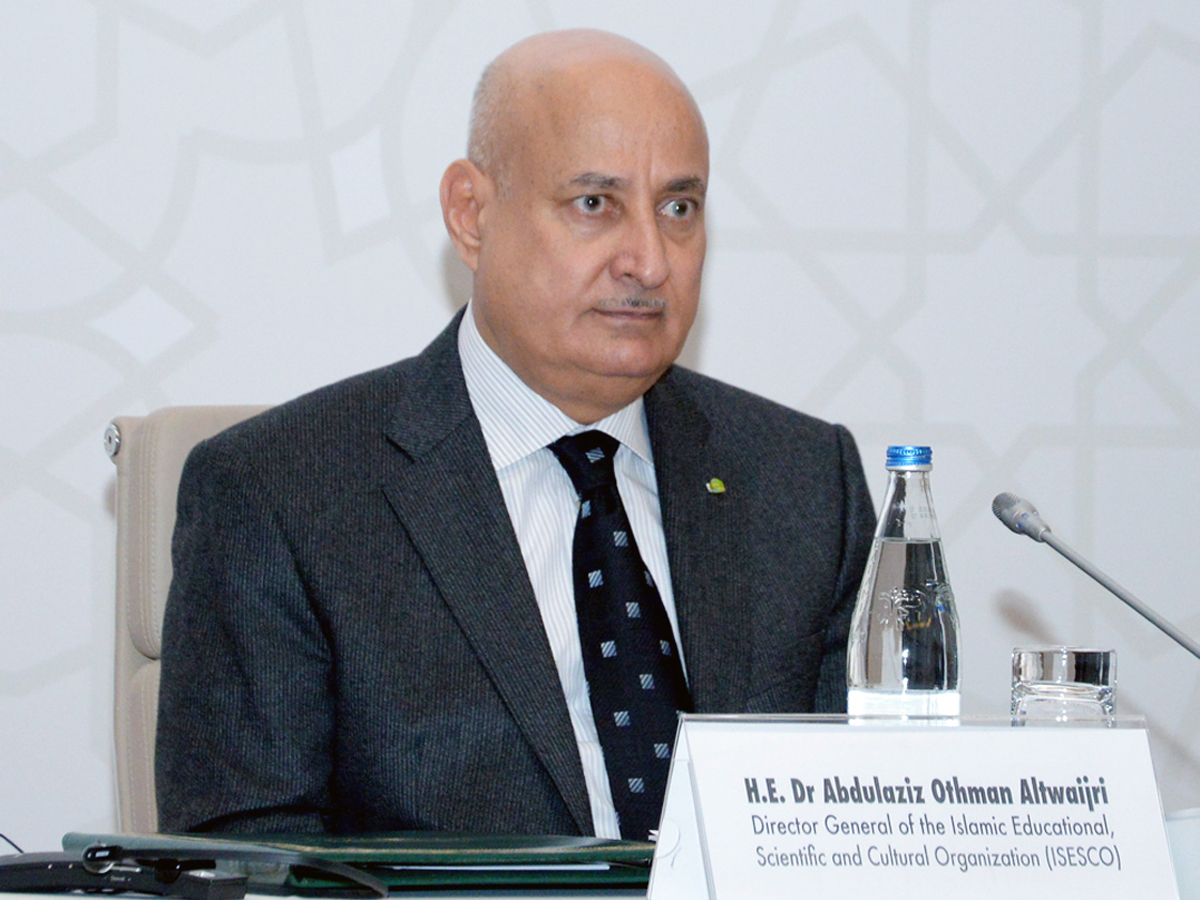Baku, Azerbaijan, Feb.8
By Leman Zeynalova – Trend:
The Islamic Educational, Scientific and Cultural Organization (ISESCO) appreciates Azerbaijan’s efforts under leadership of Ilham Aliyev to disseminate values of tolerance, Director General of ISESCO Abdulaziz Othman Altwaijri said in an interview with Azernews.
He pointed out that the Republic of Azerbaijan deploys great efforts in the field of promoting dialogue among cultures and coexistence among followers of different religions through civilizational initiatives including the annual organization of the World Forum on Intercultural Dialogue, the establishment of the National Center for Tolerance, which translates the principles of tolerance, harmony and coexistence into real-life practices and executive measures which all embody the fruitful cooperation and active partnership between the Ministry of Culture and the national commission in charge of the relations with the religious institutions in the Republic of Azerbaijan, UNESCO and ISESCO.
“On this occasion, I am pleased to reiterate my great appreciation of the distinguished efforts and the civilizational mission undertaken by the Government of Azerbaijan under the leadership of His Excellency Mr Ilham Aliyev, President of the Republic, to disseminate the culture of peace and values of tolerance; promote dialogue among cultures, alliance between civilizations and coexistence among nations and peoples; deepen larger human cooperation and jointly and continuously work to build a new world order on the solid bases of mutual respect of creative spiritual, cultural and civilizational diversity,” said Altwaijri.
He went on to add that the civilizational and cultural heritage of the Republic of Azerbaijan is known for its richness and diversity thanks to its openness and interaction with multi-source human cultures and the innovations of Azerbaijani intellectuals, scholars, writers, poets, artists, architects, and craftsmen.
“Such richness and diversity are also owed to the outreach of heritage schools and its cultural and scientific institutions and their abundant production in all fields of knowledge, architecture and artistic expression. In Azerbaijan, various cultures, successive civilizations, multi-source arts and literature have interplayed to turn the country into an abode of tolerant coexistence and true civilizational and cultural dialogue in its deepest sense,” noted ISESCO director general.
Therefore, the Republic of Azerbaijan is one of ISESCO Member States that pay close attention to its cultural and civilizational heritage, both tangible and intangible, as it is a key symbol of their Islamic civilizational identity and a considerable opportunity to showcase its cultural diversity, said Altwaijri.
“To this end, Azerbaijan set up prestigious museums, accorded interest to developing cultural tourism, and organized various art and cultural festivals. For these considerations, two of Azerbaijan’s cities were selected as Asian region’s capitals of Islamic culture: the first is Baku in 2009 and the second Nakhchivan in 2018,” he added.
He further spoke about ISESCO’s work on promoting mutual understanding among people of different religions and cultures in an effort to prevent conflicts on the religious ground.
ISESCO is concerned with fostering the values of dialogue among followers of religions, cultures and civilizations, both in Islamic countries and in the world. ISESCO is an active player in the international action in the field of intercultural dialogue, noted Altwaijri.
“I have stressed, on many occasion, that upgrading dialogue to a level of comprehensive cooperation can consolidate Islamic and human solidarity to build global peace and disseminate the values of religious harmony on the basis of mutual respect. This constitutes an efficient method to fight all forms and degrees of terrorism and hate; and counter all aspects of extremism, violence, fanaticism and identitarian closure,” he said.
“The more we follow this path and continue working with this spirit, the more we can contribute to enlightening future generations of the truths about religions, good morals, and the noble deeds that incentivize Muslims to work for the good of humanity, more openness to other religions and cultures, and for the service of Sustainable Development Goals (SDGs) which contribute to the stability, prosperity, development and progress of societies and maintenance of security, peace and harmony between nations and peoples.”






